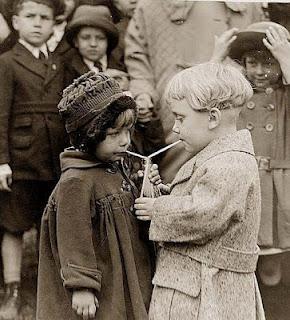Teaching your Child to Share
 Sharing is a great quality every parent wants their child to have. A child who can share gets into fewer fights and is able to make friends more easily. Children who can share find themselves more at ease in school and look forward to play-dates. Sharing is not a quality a child is born with. In fact, it is a skill that children have to be taught from an early age. Toddlers and preschoolers both tend to have a problem with sharing, and often parents and teachers find themselves in the middle of a shouting struggle over a toy or a book. Here are some great tips to ensure that you (and your child) can avoid these pitfalls.
Sharing is a great quality every parent wants their child to have. A child who can share gets into fewer fights and is able to make friends more easily. Children who can share find themselves more at ease in school and look forward to play-dates. Sharing is not a quality a child is born with. In fact, it is a skill that children have to be taught from an early age. Toddlers and preschoolers both tend to have a problem with sharing, and often parents and teachers find themselves in the middle of a shouting struggle over a toy or a book. Here are some great tips to ensure that you (and your child) can avoid these pitfalls. 1. Model SharingChildren learn from their parents. They tend to model their behavior and learn most of their life skills from home. If you do not share with your spouse, friends or extended family, then the chances are that your child will pick up on this. Share within your house and encourage other members to do the same. When eating, cut up a piece of your food and share it with your child and partner, just to make a point. When working in the kitchen, share the experience with your child. Let them ice the cake or have a go with the cookie cutter. Ask your child if (s)he would like to “share” your favorite hat, scarf, books, anything really.
2. Take TurnsTeach your child the benefits of sharing. Explain that if (s)he shares his favorite book, then others will share their favorite toys too. One of the best ways to do this is to teach them to take turns playing with the same toy, so that everyone can have some time with it. Then, make sure they do so. You may have to literally pry a toy from their hands, but it’s worth it in the long run. Do this once a day or once a play-session, and eventually, your child will start taking turns without your monitoring them.
3. RewardsAlways appreciate your child, so they can understand what behavior is right. Keep gold sticker stars, apples, hugs and kisses in stock so you can reward your child when he or she shares. This will make the child want to repeat the rewarded behavior. Always thank your child in a manner he or she can easily understand, “Thank you for sharing your toy!” Children like making their parents happy and repeat behavior that gets positive reactions.
4. Pause the PunishmentsNever yell at a child if (s)he refuses to share. Yelling never helps and does not teach a child anything but to yell when something doesn’t go their way. Since sharing is a skill and a slightly complicated habit to develop, it is very important to be patient. Each child learns at a different pace and being harsh will not yield any results. Give your toddler or preschooler time, sit down with him or her and talk it out. Find out how he or she feels about sharing. Sometimes, children throw tantrums because something else is bothering them, so give your child time to explain, instead of punishing them.
 While these tips are sure to teach your child to share, remember that some children take longer than others. At the end of the day, how much effort you put in may prove to be very vital. Just remember that he or she is still learning and growing, and does not always make rational choices like an adult. Be patient and share stories of kindness and sharing with your little one, so he or she can understand it better!
While these tips are sure to teach your child to share, remember that some children take longer than others. At the end of the day, how much effort you put in may prove to be very vital. Just remember that he or she is still learning and growing, and does not always make rational choices like an adult. Be patient and share stories of kindness and sharing with your little one, so he or she can understand it better!Michelle Jennison spends her free time writing, traveling & visiting www.healthinsurancequotes.org.

